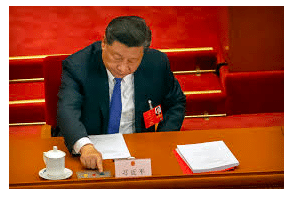Published at Made In China
Changhao Wei Postdoctoral Fellow, Paul Tsai China Center, Yale Law School writes…
Postdoctoral Fellow, Paul Tsai China Center, Yale Law School
Reining in Rogue Legislation
An Overview of China’s Invigoration of the ‘Recording and Review’ Process
During the 1980s and 1990s, the Chinese Government created two forms of administrative detention to combat perceived social ills. The first, ‘custody and repatriation’ (C&R, ????), was used ‘as a coercive measure to manage the flow of migrant workers and undesirables into China’s urban centers’ (Hand 2006: 120). The other, known as ‘custody and education’ (C&E, ????), targeted sex workers and their clients (He 2015: 440). Corruption and abuse pervaded both systems (Hand 2006: 121; He 2015: 453–54; Zheng 2019: 89), and they were separately challenged by legal activists for violating China’s Constitution and national laws through a process called ‘recording and review’ (R&R, ????).
Rooted in the Chinese Constitution, R&R was fully operationalised for the first time in 2000, with the enactment of the landmark Legislation Law (???). In short, R&R is an oversight tool employed by China’s top legislature, the Standing Committee of the National People’s Congress (NPCSC), to ensure that sub-statutory legislation—ranked below national statutes as to legal force, such as local legislation—conforms to national statutes and policy. R&R is also China’s sole mechanism for bringing constitutional challenges to enacted legislation; courts are not empowered to perform constitutional review. In practice, the NPCSC Legislative Affairs Commission (LAC, ???????), a 200-strong professional support body under the NPCSC, conducts review and enforces its decisions on the legislature’s behalf.
While both challenges to the two detention systems, brought 15 years apart, ultimately succeeded, the NPCSC handled them in drastically different ways. Using them as the starting point, I will provide an account of China’s recent invigoration of the R&R process.
A Tale of Two Challenges
The demise of C&R was precipitated by a series of tragic events in 2003, when 27-year-old Sun Zhigang moved to Guangzhou for a new job.[1] One night in mid-March, Sun was detained by police after he failed to produce a temporary resident permit—something for which he had not yet had time to apply. The police suspected he was an illegal migrant, so held him in a C&R centre. Three days later, Sun died; an autopsy revealed he had been tortured in custody. His death exposed the abuses within the C&R system and soon sparked a national outcry. Amid intense public outrage, in May 2003, three legal scholars requested that the NPCSC activate its R&R process and review the constitutionality and legality of the State Council regulations that created C&R.
Read full article at https://madeinchinajournal.com/2021/09/19/reining-in-rogue-legislation/




